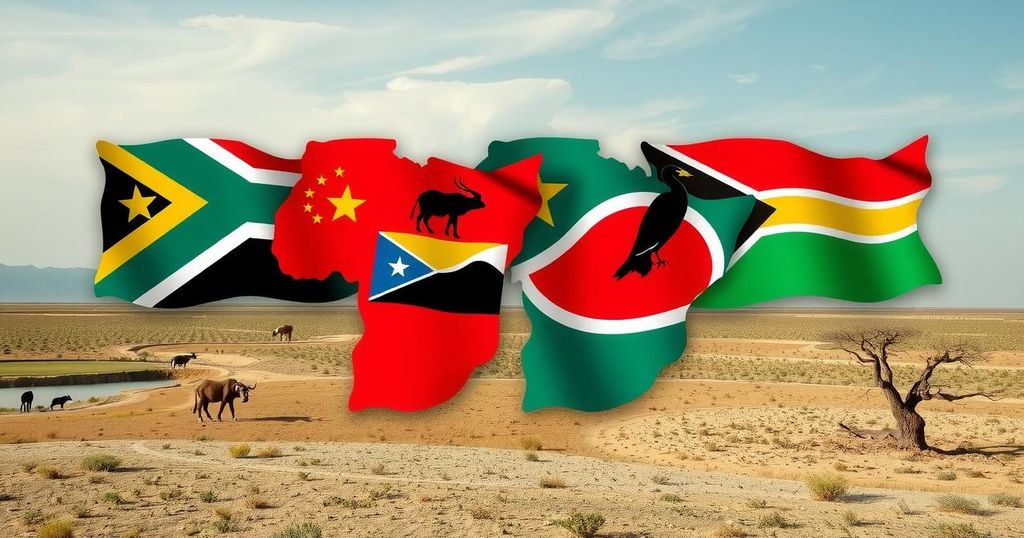Elections in Southern Africa: A Call for Political Renewal Amidst Discontent

The 2024 elections across Southern Africa signal a growing demand for political renewal amid dissatisfaction with traditional ruling parties. In South Africa, the ANC’s loss of majority signifies a pivotal change, while Botswana’s transition of power reflects public frustration over economic issues. Conversely, Mozambique faces challenges with electoral legitimacy, and Namibia’s status quo continues amid emerging calls for reform. These developments highlight the complex interplay of historical governance and contemporary electoral discontent.
The 2024 elections in Southern Africa, particularly in South Africa, Botswana, Mozambique, and Namibia, underscore a pressing need for political renewal within the region. While there is a general perception that this marks a transformative moment, the realities in each nation are unique and require nuanced analyses beyond a simplistic view of an overarching “wind of change.” For instance, South Africa’s ruling African National Congress (ANC) lost its majority, compelling a coalition government formation, partly due to the rise of other political parties and social grievances that the ANC has struggled to address.
In Botswana, the transition of power after nearly sixty years of governance by the Botswana Democratic Party (BDP) indicates a significant shift. This was driven primarily by widespread economic dissatisfaction among citizens, particularly the youth, who faced a high unemployment rate of 28% and unfulfilled promises regarding social development. The new government led by Duma Boko has called for significant reforms, including initiatives to stabilize the economy and reduce dependency on the diamond trade.
Conversely, Mozambique’s recent elections highlighted the deep dissatisfaction with the ruling Frente de Libertação de Moçambique (Frelimo) among urban and middle-class citizens seeking solutions to the nation’s economic difficulties. Despite allegations of electoral fraud and violence, Frelimo retained power, revealing a complex political landscape whereby opposition movements, such as those led by Venâncio Mondlane, are struggling for coherence in articulating a viable alternative.
Lastly, Namibia’s situation stands in contrast; despite calls for change, the ruling South West Africa People’s Organisation (SWAPO) has solidified its dominance by electing a female president, marking a positive, albeit subdued, deviation in regional trends. However, concerns regarding electoral integrity persist, reflecting unresolved complexities in the democratic processes throughout the region.
In essence, the electoral events across Southern Africa underscore a significant but intricate quest for political evolution characterized by varying degrees of change, legitimacy, and the old liberation movements’ relevance amidst increasing public disillusionment. Voter dissatisfaction rooted in economic disparities and a thirst for accountability presents a crucial inflection point for governance in these countries, indicating that lasting stability requires meaningful engagement with the electorate’s aspirations.
The political landscape of Southern Africa has been historically influenced by liberation movements that emerged in response to colonial and apartheid rule. However, as nations like South Africa, Botswana, Mozambique, and Namibia approach elections, the effectiveness of these movements is being challenged by rising discontent among the populace, particularly concerning economic policies, social inequality, and electoral integrity. Understanding this context is critical for analyzing the recent electoral outcomes and their implications for governance in the region.
The electoral outcomes in Southern Africa reveal a significant shift in public sentiment and a growing demand for accountability and change from established political entities. Former liberation movements are now increasingly scrutinized by a younger and more economically aware electorate that prioritizes social justice, economic development, and anti-corruption measures. The stability of future governance in the region will depend on how these movements adapt to these changing dynamics.
Original Source: www.fairobserver.com







